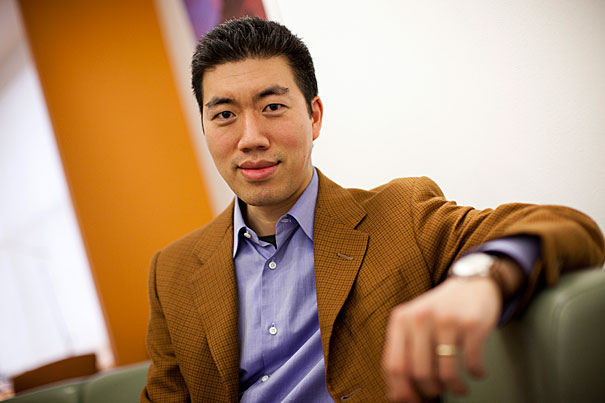Health
-

Break in the case for long COVID investigators
Research highlighting chronic inflammation opens path to treating illness that affects millions of Americans

-

The problem with the school smartphone debate
Study finds most districts already regulate devices. Is the real issue enforcement?

-
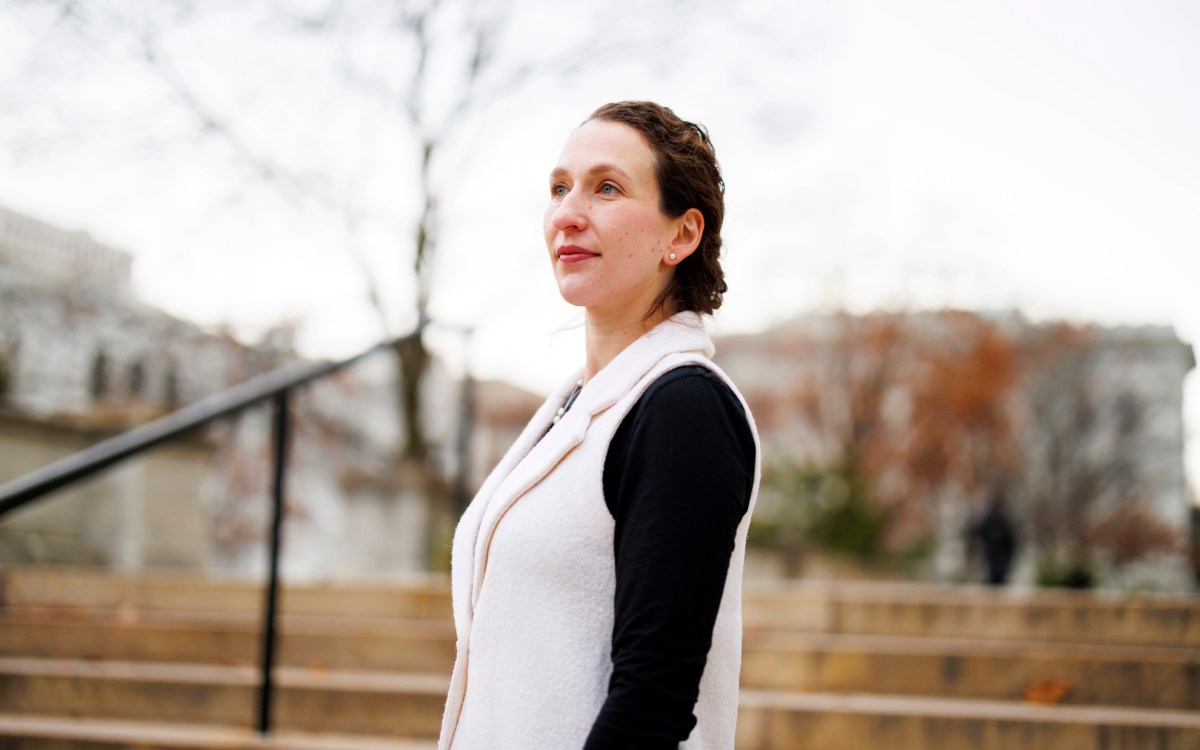
Just who gets a say at FDA public drug-approval hearings?
New research shows negative voices are relatively rare in drug approval hearings.
-

Your digital twin might save your life
AI, statistics offer new possibilities for personalized medicine
-

Time to legalize psychedelics?
Campus debate weighs therapeutic need vs. safety questions
-

How a toxin from the gut microbiome may help spark colorectal cancer
Findings suggest colibactin may be promising target for disease prevention

-
Viral infections may have met their match
A Massachusetts General Hospital-led research team of Harvard affiliates has identified an immune cell protein that is critical to setting off the body’s initial response against viral infection.

-
21 million in slavery
Experts on forced labor and sexual slavery outlined what remains a large-scale problem.

-
Nut consumption reduces risk of death
In the largest study of its kind, people who ate a daily handful of nuts were found to be 20 percent less likely to die from any cause over a 30-year period than those who didn’t consume nuts, say Harvard researchers.

-
Malaria in 3-D
Using an imaging technique known as high-speed holographic microscopy, Laurence Wilson, a fellow at Harvard’s Rowland Institute, worked with colleagues to produce detailed 3-D images of malaria sperm — the cells that reproduce inside infected mosquitoes — that shed new light on how the cells move.

-
Clues on generating muscles
Harvard stem cell scientists have discovered that the same chemicals that stimulate muscle development in zebrafish can be used to differentiate human stem cells into muscle cells in the laboratory, which makes muscle cell therapy a more realistic clinical possibility.
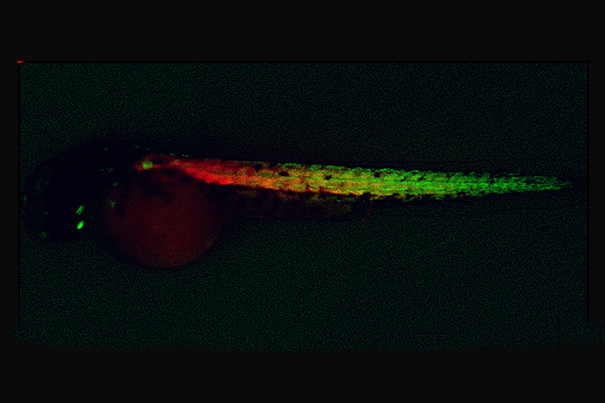
-
Researchers find drug that could halt kidney failure
A drug approved for the treatment of rheumatoid arthritis may also turn out to be the first targeted therapy for one of the most common forms of kidney disease, a condition that almost inevitably leads to kidney failure.
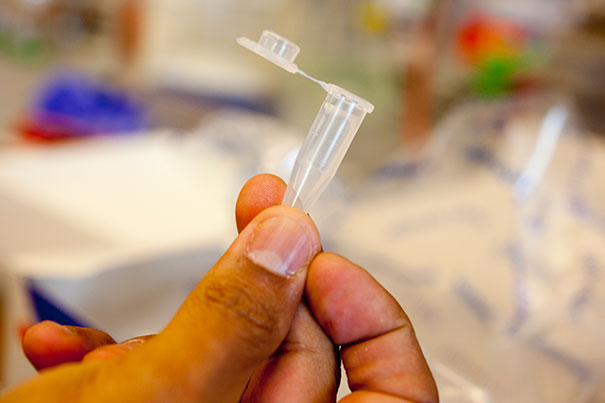
-
Underprepared for the next pandemic
A lack of “surge” capacity plagues pandemic flu preparations around the world, as public health officials, scientists, and pharmaceutical industry scientists work to streamline vaccine production as well as improve surveillance, communication, and other public health practices before the next new ailment hits.
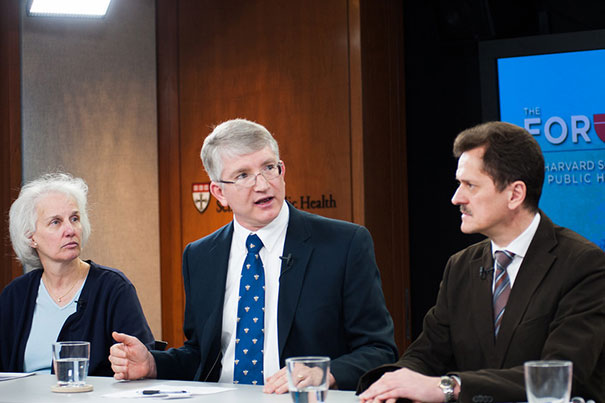
-
Broad launches next decade with $100M gift
American philanthropists and entrepreneurs Eli and Edythe Broad announced on Thursday they are investing an additional $100 million into the Broad Institute of Harvard and MIT to launch a new decade of transformative work to harness recent biomedical discoveries to benefit patients.
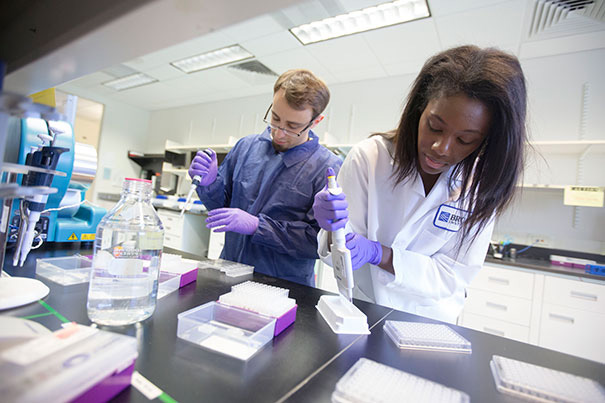
-
Genes without patents
The ACLU’s lead attorney and other participants in the Supreme Court case that overturned the common practice of patenting human genes discussed the ramifications in an event at the Science Center.
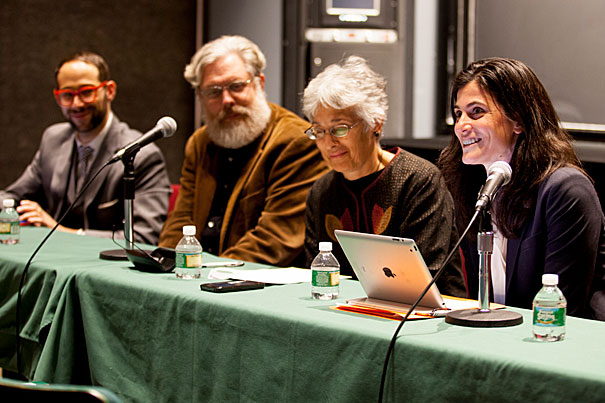
-
An end to trans fats?
A proposal issued today by the U.S. Food and Drug Administration, if finalized, would effectively make trans fat in the food supply a thing of the past. The Gazette asked Professor Walter Willett, chair of the Department of Nutrition at the School of Public Health, to discuss the potential impact of the ruling, in policy and health.
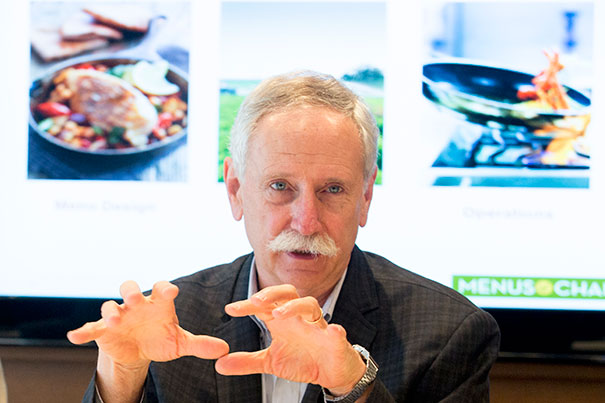
-
Three days, three wild finds
Tim Laman, an associate of Harvard’s Museum of Comparative Zoology and an award-winning wildlife photographer, was part of a two-man team that helicoptered into a remote Australian rainforest earlier this year, coming out with three new species: two lizards and a frog.

-
Stages of bloom
Harvard researchers have solved the nearly 200-year-old mystery of how Rafflesia, the largest flowering plants in the world, develop.

-
Online, on site, in the field
Harvard School of Public Health Dean Julio Frenk outlined a new vision for public health education Friday (Nov. 1), outlining courses that blend online, in-person, and in-the-field experiences and that take different forms throughout a professional’s life.
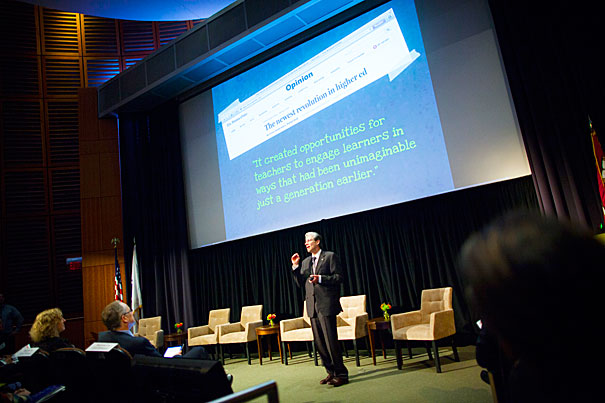
-
When depression and anxiety loom
Two new books from Harvard Health Publications are aimed at people who have more than normal levels of anxiety and depression but fall short of clinical definitions.

-
Comparing charts on health
U.S. and Chinese health officials gathered at Harvard’s Longwood Campus to discuss health care challenges facing both nations, including the rise of noncommunicable diseases and reforming health care systems.

-
New insight on wild nights
New research suggests that, despite moonlight’s apparent hunting advantage, large predators such as lions are actually less active on the brightest nights, while many prey animals — despite the risk of being eaten — become more active.
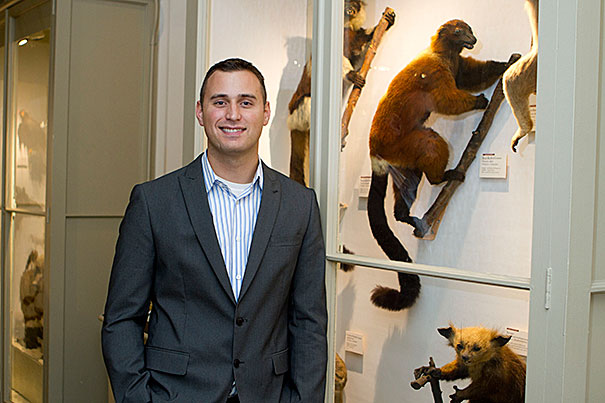
-
A new era in disaster relief
A report edited by a research scientist from the Harvard Humanitarian Initiative highlights the increasingly important role of social media and cellphones in disaster relief.
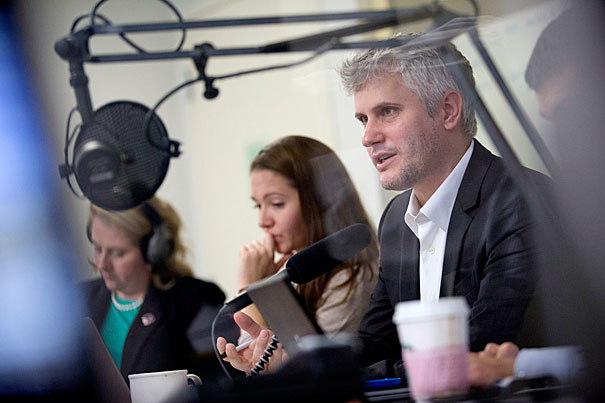
-
How ‘traffic light’ labels promote healthier eating
A simple, color-coded system for labeling food items in a hospital cafeteria appears to increase customers’ attention to the nutritional value of their food choices, and encourage the purchase of the healthiest items.

-
TB’s links to diabetes
Tuberculosis researchers from around New England gathered at the Broad Institute of Harvard and MIT to examine the links between metabolic diseases such as diabetes and tuberculosis.
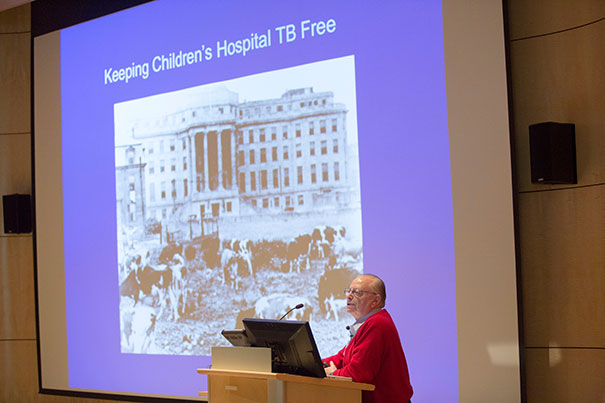
-
Improving cord blood transplants
They began with a discovery in zebrafish in 2007, and now researchers at the Harvard Stem Cell Institute (HSCI) have published initial results of a Phase Ib human clinical trial of a therapeutic that could improve the success of blood stem cell transplantation. This marks the first time that HSCI has carried a discovery from the lab bench to the clinic.
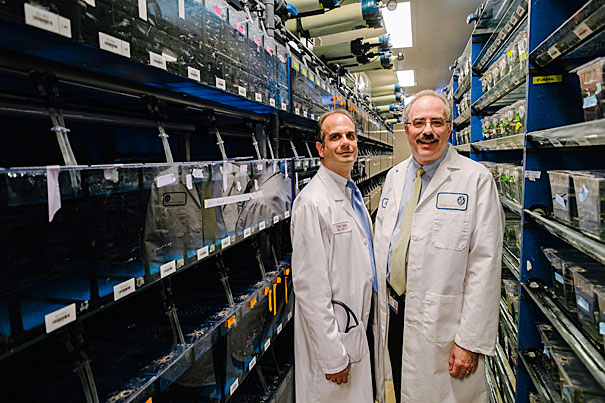
-
Catching up on health care
John McDonough of HSPH talks about the rollout of health insurance exchanges as part of the Affordable Care Act.
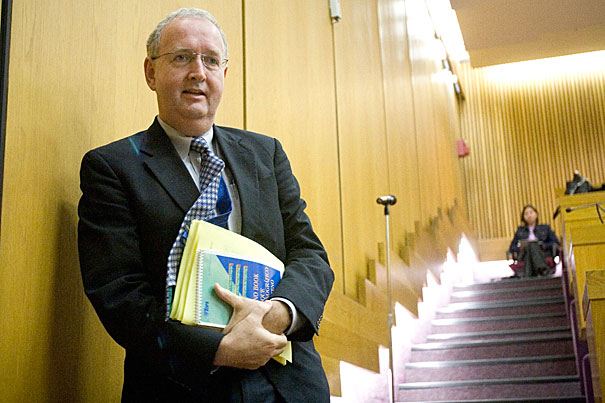
-
New test for Down syndrome
Experts in child health gathered at Harvard Medical School on Tuesday for a symposium on how genome biology is changing children’s health.

-
A tiny, time-released treatment
Targeted nanotherapy is the wave of the medical future, according to Omid Farokhzad, a Harvard Medical School and Brigham and Women’s Hospital researcher who has two nanoparticle-based therapies in clinical trials and a slew of ideas for new ways to put the tiny capsules to work for human health.
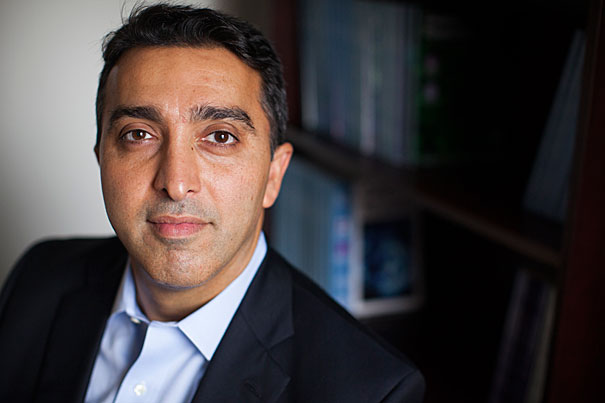
-
Little improvement seen in antibiotic abuse
Harvard research shows that while only 10 percent of adults with sore throat have strep, the only common cause of sore throat requiring antibiotics, the national antibiotic prescribing rate for adults with sore throat has remained at 60 percent.

-
Dream saga of WWII
As part of a project by Professor Deirdre Barrett to resurrect a study started in 1940, a group of Harvard undergraduates probed the dreams of British officers captured early in World War II and held in a German prison camp.

-
Flu’s coming, but which kind?
With a new flu virus appearing in China in April and a new SARS-like respiratory ailment appearing in the Middle East, the Gazette sat down with Harvard epidemiologist Marc Lipsitch to talk about the upcoming flu season.
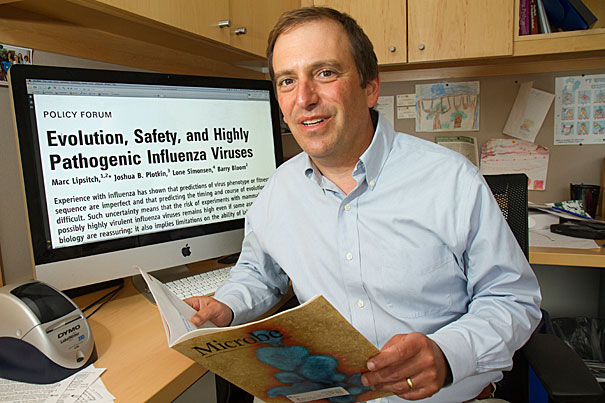
-
Deconstructing motor skills
Harvard researchers have found that the brain uses two largely independent neural circuits to learn spatial and temporal aspects of complex motor skills.

-
Narrative of the body, with a nasty twist
Many modern chronic diseases result from mismatches between how our bodies evolved to be used and how we use them today, Harvard evolutionary biologist Daniel Lieberman writes in a new book.
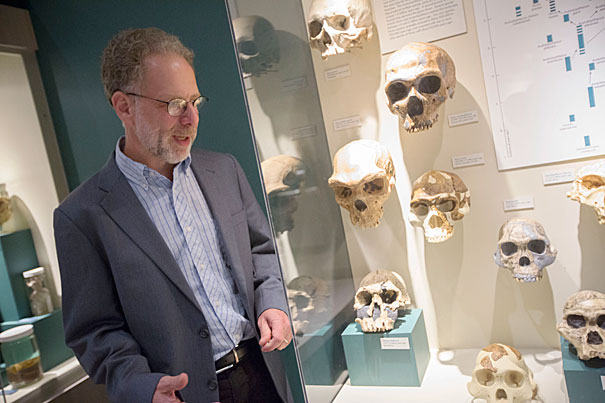
-
Programming genetic code can lead to better designer genes
The key to programming bacteria to follow orders has been found in its protein production. Researchers have learned that by using more rare words, or codons, near the start of a gene, they can remove roadblocks to protein production. The knowledge may mean new drugs and biofuels.
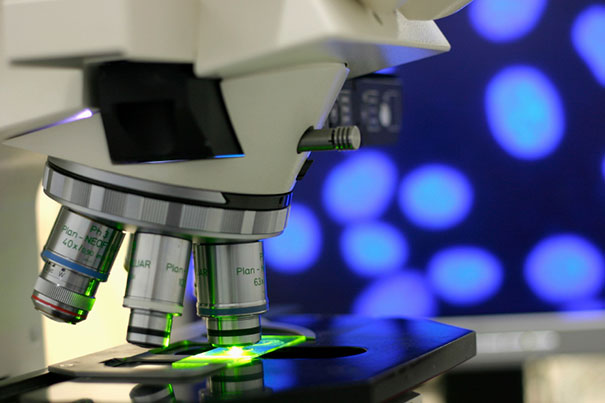
-
A foundation for future research
Harvard researchers recently developed the most detailed “specificity profile” for Cas9 — a “machine” made of protein and RNA that can be programmed to target specific DNA sequences and to precisely cut, paste, and turn on or turn off genes. Future researchers will use the data when developing genetic tools and therapies.
